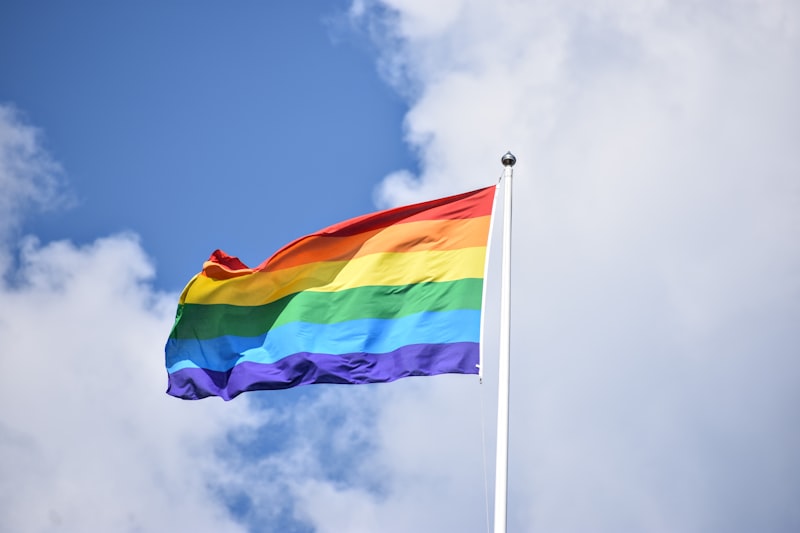Ban on Pride Flags at US Embassies Sparks Controversy Amid $1.2 Trillion Spending Package
Washington, D.C., March 25, 2024 – A new provision within the recently signed $1.2 trillion spending package has ignited a nationwide debate over the flying of pride flags at U.S. embassies around the world. The clause, part of a broader bipartisan funding bill aimed at averting a government
Washington, D.C., March 25, 2024 – A new provision within the recently signed $1.2 trillion spending package has ignited a nationwide debate over the flying of pride flags at U.S. embassies around the world. The clause, part of a broader bipartisan funding bill aimed at averting a government shutdown and bolstering the economy, explicitly prohibits the use of appropriated funds for the display of any flag other than the United States flag over American diplomatic facilities.
The decision marks a significant reversal from previous administrations' policies regarding the visibility and representation of LGBTQ+ symbols in public diplomacy. Under President Obama's tenure, the practice of flying pride flags at U.S. embassies was initiated as a gesture of solidarity with the global LGBTQ+ community, only to be restricted under President Trump in 2019. The Biden administration had reinstated the allowance in 2021, amplifying its commitment to LGBTQ+ rights both domestically and internationally.
President Joe Biden, in a press release regarding the signing of the funding bill, emphasized the nature of compromise inherent in the legislative process, stating, "This agreement represents a compromise, which means neither side got everything it wanted." Despite this conciliatory tone, the inclusion of the pride flag ban has been met with criticism from LGBTQ+ advocates and allies, who view it as a targeted move undermining the rights and recognition of LGBTQ+ individuals.
A spokesperson for Human Rights Campaign, Brandon Wolf, expressed disappointment but clarified the scope of the ban, noting, "It poses absolutely no limits to other displays of a pride flag, hosting LGBTQ+ events or embassy employees’ ability to display Pride flags in their work spaces," as reported by Fox Business (Fox Business). This statement highlights the nuanced implications of the policy change, which restricts the official display of pride flags on embassy flagpoles but does not curtail other forms of LGBTQ+ expression and advocacy within diplomatic contexts.
In response to the backlash, the White House has signaled its intention to seek avenues for repealing the ban, according to a statement to CBS News. This effort reflects the Biden administration's broader agenda of supporting LGBTQ+ rights, amid challenges from various legislative and judicial fronts.
The development has not only garnered attention from lawmakers and advocacy groups but also prompted discussions among diplomatic personnel about the role of embassies in representing American values abroad. As the U.S. strives to balance diverse domestic interests with its international image, the debate over the pride flag ban serves as a reminder of the complex interplay between policy, symbolism, and diplomacy.
As the situation evolves, both supporters and opponents of the ban are closely watching for potential legislative or executive actions that may alter the current stance, signaling the ongoing importance of LGBTQ+ rights in America's political landscape and diplomatic engagements.

